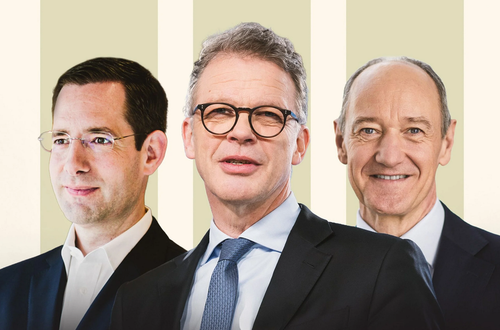Germany has launched a significant investment initiative dubbed “Made for Germany,” aiming to mobilize €300 billion from over 30 major corporations by 2028. This ambitious campaign, reported by Handelsblatt, is intended to rejuvenate the country’s struggling economy under the leadership of Chancellor Friedrich Merz. However, skepticism surrounds whether this effort represents a genuine economic revival or merely a public relations strategy to bolster the government’s image.
Chancellor Merz is currently facing a credibility crisis, with his economic policies failing to inspire confidence. Promises such as the planned electricity tax cut have fallen through, leading to headlines dominated by government plans to accrue substantial new debt. With Germany experiencing a third consecutive year of recession and significant job losses, the urgency for real economic change has never been more pressing.
The announcement of the “Made for Germany” initiative comes alongside a newly approved €46 billion corporate tax relief package, which will be implemented over four years. While this gesture serves to acknowledge the burdens faced by an overtaxed business sector, it falls short of addressing the underlying issues. Productivity in Germany has stagnated since 2017, with the country losing more investment than it attracts. According to the Bundesbank, net direct investment outflows reached €60 billion in 2023 alone.
Corporate Leaders Unite for Economic Change
The initiative is spearheaded by prominent executives, including Roland Busch of Siemens, Alexander Geiser of FGS Global, and Christian Sewing of Deutsche Bank. An industry summit featuring these leaders, alongside Chancellor Merz and Finance Minister Lars Klingbeil, is set for July 21, 2023, in Berlin. Companies such as RWE, Volkswagen, Rheinmetall, and SAP are also expected to participate, further highlighting the collective effort from Germany’s corporate giants.
Despite the impressive headline figure, questions linger about the originality of this initiative. Many analysts are asking how much of the €300 billion involves newly committed funds versus previously planned investments. The apparent coordination between corporate leaders and the government raises suspicions that this may be more of a rebranding exercise than a fresh approach to reviving the economy.
Officials emphasize the need to “turn around the mood” in Germany, but the economic conditions that have led to widespread pessimism cannot be ignored. With energy-intensive industries facing challenges from stringent climate policies under the Green Deal, a comprehensive revival plan must focus on addressing these critical issues.
Addressing Underlying Issues for Genuine Revival
A successful initiative would require new private capital that is free from political conditions, subsidies, or special guarantees. Historically, Germany’s green economy has struggled without substantial state support, as seen in the recent failures of initiatives like the heavily subsidized “green steel” projects at ArcelorMittal. These industries have not thrived in the market, indicating a disconnect between ambitious environmental goals and economic viability.
Until there are clear details on actual investments and commitments from the “Made for Germany” initiative, it may be prudent to view it as another public relations maneuver. This time, corporate Germany appears to be stepping forward, potentially aiming to enhance its image both domestically and on the international stage. As Chancellor Merz navigates the complexities of his early term, positive headlines could be a welcome relief in his efforts to avoid being branded a “lame duck.”
As the situation develops, it remains crucial for both the government and the corporate sector to demonstrate genuine intentions to invest in the future of Germany, focusing on sustainable growth that can withstand the pressures of both local and global challenges.
